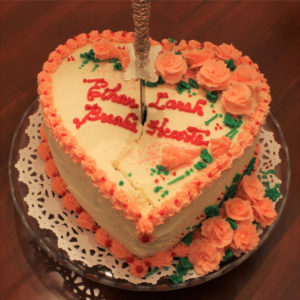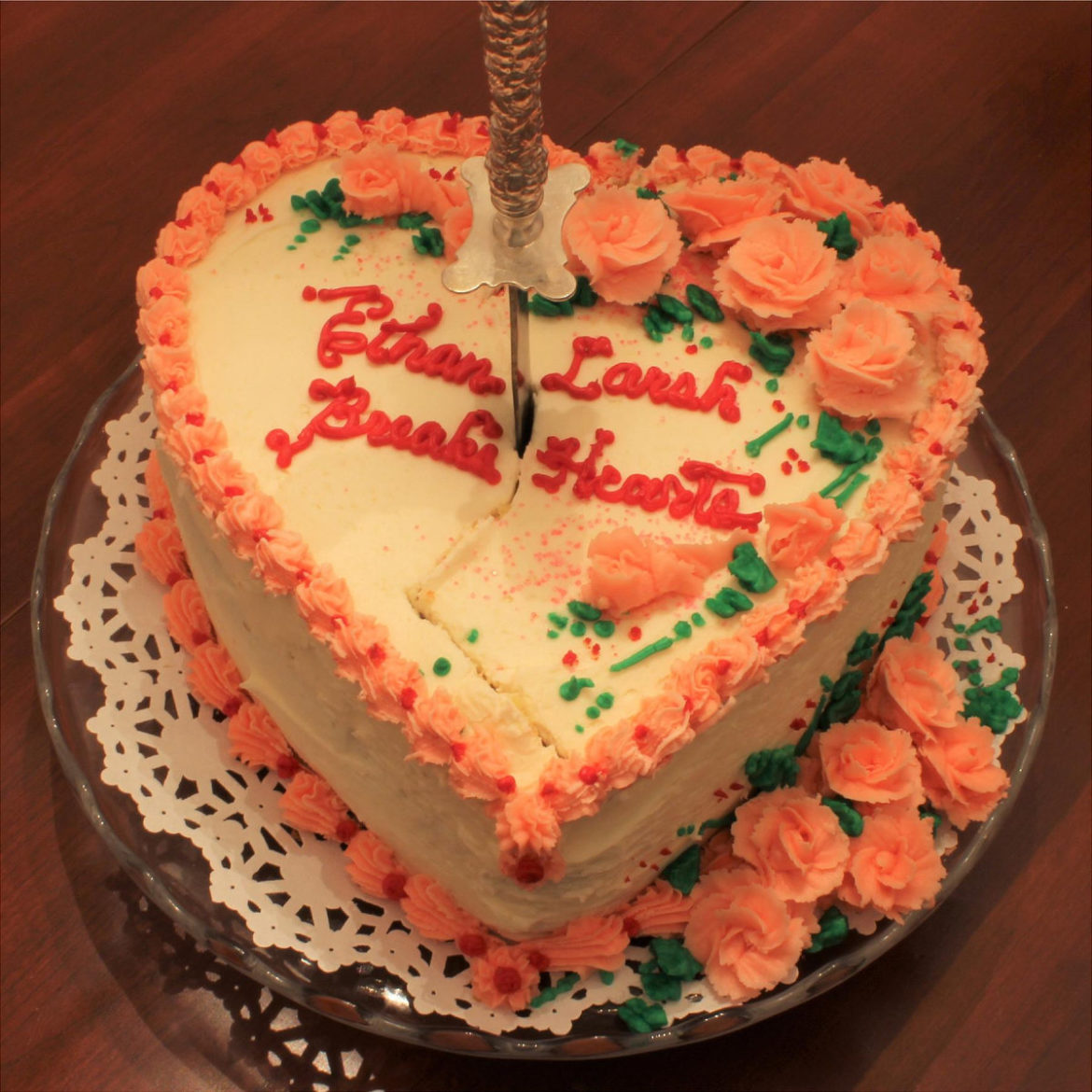 Ethan Larsh breaks hearts.
Ethan Larsh breaks hearts.
It kind of writes itself, doesn’t it? Not only as a first sentence for a record review, but also as a title for a record. It rolls off the tongue easily. It’s simple. It’s right to the point. And, above all, it sets the tone for a collection of music that ebbs and flows so naturally, it’s hard not to wonder how much of that title is a wink and a nod, or how much of it is a confident declaration of one’s past romantic escapades.
Such is what makes “Ethan Larsh Breaks Hearts” so fun: toeing that line between being in on a joke and being taken too seriously. The album, in itself, touches on all the tropes a good, old-fashioned rock album should: sex (or, in this case, perhaps, love), drugs, and … well … rock and roll. Presented in the context of quirky piano pop, though, it’s beyond refreshing to hear someone so confident in who they are as both a musician and an artist.
Let’s be honest: It takes a healthy dose of self-awareness to concoct the one-two-punch that is “Coca-Cola” and “I Miss Cocaine.” The two tracks running back to back, “Coca-Cola” begins with a faint piano blues boogie before the band mildly kicks in and Larsh immediately begins listing off the brands of soda that don’t impress him. This, of course, leads to a chorus that feels like the moment the sun finally sheds the clouds around it, offering a bright and radiant proclamation that Coca-Cola is “the best drink money can buy.”
Yet because the message is so obvious and so innocent and so plain, you don’t think Ethan Larsh, the man who breaks hearts, could be talking about … oh, wait. Yes, he could be. And, yes, he is.
“I Miss Cocaine,” landing right after the ode to a soft drink, is a love letter to the famous white powder that oh-so-many musicians love to frequent from time to time. What makes the trick work, however, is Larsh’s grinning vocal riff that splits the hook: “I miss cocaine/and how it effects my brain,” he begins before playfully admitting, “I’ll say it again.” Presented over ballad-like longing, the turn is so unexpected that it works, both in sincerity and purpose. If you’re not smiling yourself, you don’t get it.
And getting it is half of what makes these 12 songs so intensely endearing. “Breaking Up The Band” opens with only piano, strings and vocals, and while the music is decidedly pretty, the singer’s words are cutting as he confronts what sounds like a frenemy about a collaboration that’s turned sour. The brilliance comes when the chorus hits and Larsh impressively evokes the Beatles with boppy work on the keys and a pop-tastic electric guitar riff, all before the strings return and the best Top 40 hit that 1971 never heard unfolds.
Yet while McCartney is a great influence on which to call, what makes Larsh so compelling is his chameleon-like ability to switch up sounds. “Belleville,” for instance, feels far more Ben Folds Five than it does Fab Four — right down to the singer’s voice, which doesn’t not recall some of Folds’ solo work. The constant smirk that lurks behind everything also makes it hard to ignore the comparison. An uptempo introduction to the record (save for the 30-second “Intro”), it’s the perfect greeting from an artist as charming as he is talented.
Perhaps the set’s greatest achievement has little to do with what he does here and rather with what he doesn’t do, which is slide into an uninteresting, predictable formula that would bog the album down. “Most Of The Time” is even kind of — kind of — funky, fainted cowbell and all. Touching on praying to God, losing his mind and “a Hot Topic in a sea of shopping malls,” it’s a sad kind of happy dance that the pianist brings to the floor.
“Tick Tok (We’re All Going To Die),” in all its Randy Newman-esque glory, then addresses the happiest of subjects — death — with jangly pop and even a few horns that jazz up its surroundings. And “You Don’t Know Me” is a fantastic shot of piano-driven classic rock with a chorus that definitely deserves to be heard by millions. It’s Exhibit A when wondering if this guy is merely a victim of being born during the wrong era of pop music.
That doesn’t mean, of course, that Ethan Larsh doing Ethan Larsh things in the current day should be ignored on any level, even if his chance at superstardom may have washed away with Elton John’s peacock-backed jackets. In fact, it should be even more reason to lend your ears to his efforts if only because nobody else is doing this kind of stuff locally — let alone doing it as well as he’s doing it.
“How was it when you broke my heart?” the singer asks toward the end of the record. If it sounds anything like the way he did it here, the guess would be “pretty darn good.”
*** 3 STARS OUT OF 4 ***

